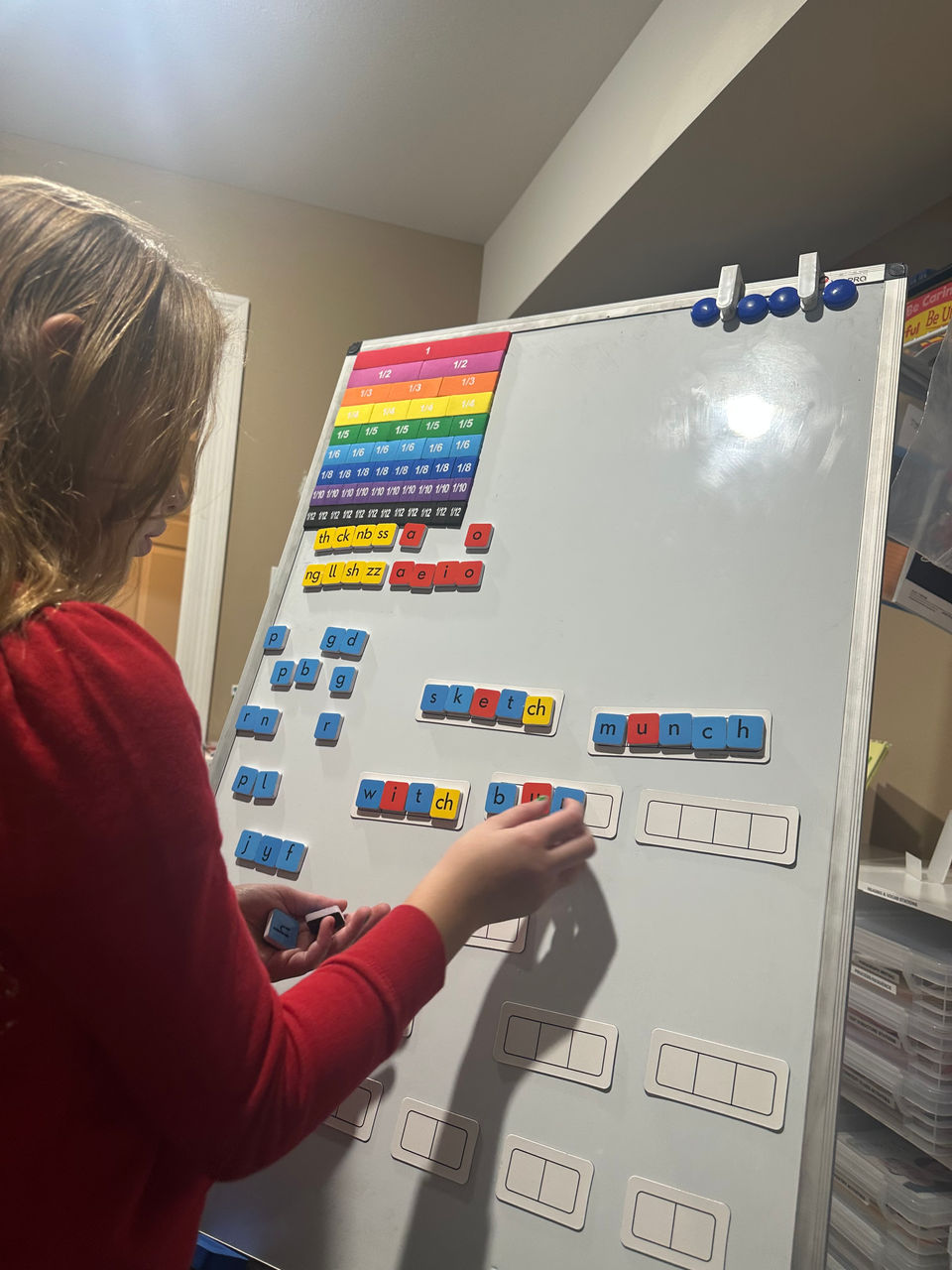Literacy Academy
Our Literacy Academy reading intervention program is designed for students with dyslexia or other specific learning disabilities, as well as students who do not have diagnosed disability but who do demonstrate reading deficits. Prior to enrolling a student in the Literacy Academy reading intervention program, a reading skills assessment is conducted to identify the student’s reading skills deficits.
Questions?
Understandably, parents have a lot of questions. I've outlined the most common questions below. Please read through these first; if you still have questions, get in touch.
Literacy Academy FAQs
What skills are measured in the Reading Skills Assessment?
Decoding/Word Recognition
Morphological Awareness
Oral Fluency
Encoding/Spelling
Vocabulary
Comprehension
What does the assessment include and what is the cost?
The cost for the reading skills assessment is $150 and includes an in-person student session with 10-12 research-based assessment tools, as well as a parent follow-up conference to review the results and determine next steps. A detailed written report can be provided for an additional $50 fee.
What assessments are used?
San Diego Quick Assessment of Reading Ability
WordID 20/20 Screener
WordID 360 Diagnostic Exam
Dibels 8 Maze Comprehension
CORE Reading Maze Comprehension
WordID Maze Comprehension
Dibels 8 Oral Reading Fluency
MASI-R Oral Reading Fluency
EasyCBM Oral Reading Fluency
IMSE Orton-Gilingham Encoding Assessment
CORE Vocabulary Screening Test
EasyCBM Basic Vocabulary
EasyCBM Basic Reading Measure
EasyCBM Proficient Reading Measure
CommonLit Reading Assessment (Aligned with CCSS)
Are you qualified to conduct an evaluation for dyslexia or other specific learning disabilities in reading?
No, I am not qualified to evaluate or “diagnose” disabilities. However, as a reading specialist and Licensed Dyslexia Therapist, I am qualified to assess skill deficits, recognize characteristics of dyslexia and other reading learning disabilities, and make referrals to the appropriate professionals who can complete those evaluations. Additionally, I am highly qualified to plan and implement reading interventions and dyslexia therapy for students who need those services.
Please see the Meet the Team section of the website for more details about our team members' qualifications and experience.
What is reading intervention?
It is important for parents to understand that there is a difference between tutoring and academic intervention. Tutoring usually involves tasks like homework help and assistance with the types of assignments being given at school. True reading intervention is about addressing the individual skill deficits that may be causing academic difficulties. It is strategically designed for each child's particular needs, is research-based, and is structured and sequenced with specific end goals in mind.
What reading intervention program do you use with emergent and developing early readers?
While I am a licensed K-12 reading specialist and dyslexia therapist, the majority of my experience and expertise has always focused upon meeting the needs of older struggling readers. Because the demand for reading support services is so great for students of all ages, I have built a team of highly-experienced elementary reading specialists and interventionists. Our entire Literacy Academy team - myself included - has over 130 combined years of teaching experience, as well as advanced degrees, certifications, and training supported by the body of research commonly known as “The Science of Reading.” Our overall approach is multi-sensory, sequential, and individualized based upon our backgrounds in structured literacy and knowledge of Orton-Gillingham methodology. However, we do not adhere to a one-size-fits-all curriculum. Instead, I have invested heavily in high-quality materials and resources that allow each of our educators to use their own expertise in providing students with the phonics-based reading support they need and deserve.
What reading program do you use with older readers?
While the majority of reading intervention at the elementary level centers on a phonological approach (typically through phonics-based programs), my experience has shown that a morphological approach is highly effective with older struggling readers. What is morphology? It is the study of the form and structure of words through an understanding of affixes (prefixes/suffixes) and bases (which hold the core meaning of the word). Direct, explicit instruction in morphology can improve the student’s word recognition (decoding) and spelling (encoding) and also impact pronunciation and oral fluency. Most importantly, a morphological approach impacts students’ ability to determine the meaning of unfamiliar words as they read more complex, middle-school and high-school level texts. Being able to figure out the meaning of words as they read ensures that students are not skipping words, which aids in their overall reading comprehension. In recent years, I have enhanced this type of word study through a process called Structured Word Inquiry (SWI) in which students become “word detectives” who explore etymology (origins/roots) in addition to understanding the morphology and phonology of words. WORDS are the building blocks of language. As such, they are the starting point for my approach to improving the reading proficiency of adolescent learners.
What is the cost of the Literacy Academy reading intervention program?
The cost of the program varies based upon the needs of the individual student; for example, factors such as the frequency and duration of intervention sessions play a role in the overall cost. Options will be discussed with parents following the completion of the reading skills assessment.

















